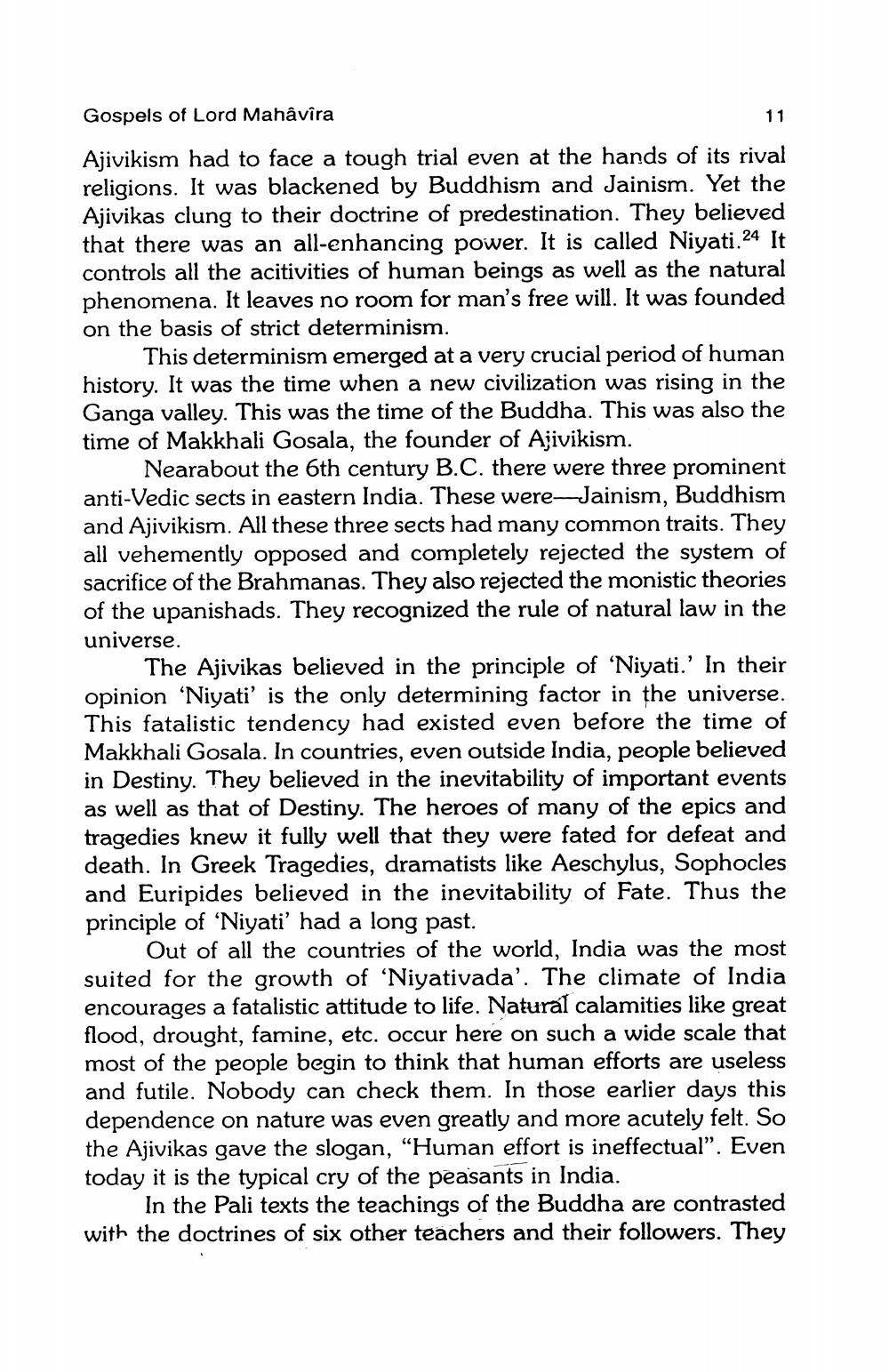________________
Gospels of Lord Mahâvira
Ajivikism had to face a tough trial even at the hands of its rival religions. It was blackened by Buddhism and Jainism. Yet the Ajivikas clung to their doctrine of predestination. They believed that there was an all-enhancing power. It is called Niyati.24 It controls all the acitivities of human beings as well as the natural phenomena. It leaves no room for man's free will. It was founded on the basis of strict determinism.
11
This determinism emerged at a very crucial period of human history. It was the time when a new civilization was rising in the Ganga valley. This was the time of the Buddha. This was also the time of Makkhali Gosala, the founder of Ajivikism.
Nearabout the 6th century B.C. there were three prominent anti-Vedic sects in eastern India. These were-Jainism, Buddhism and Ajivikism. All these three sects had many common traits. They all vehemently opposed and completely rejected the system of sacrifice of the Brahmanas. They also rejected the monistic theories of the upanishads. They recognized the rule of natural law in the
universe.
The Ajivikas believed in the principle of 'Niyati.' In their opinion 'Niyati' is the only determining factor in the universe. This fatalistic tendency had existed even before the time of Makkhali Gosala. In countries, even outside India, people believed in Destiny. They believed in the inevitability of important events as well as that of Destiny. The heroes of many of the epics and tragedies knew it fully well that they were fated for defeat and death. In Greek Tragedies, dramatists like Aeschylus, Sophocles and Euripides believed in the inevitability of Fate. Thus the principle of 'Niyati' had a long past.
Out of all the countries of the world, India was the most suited for the growth of 'Niyativada'. The climate of India encourages a fatalistic attitude to life. Natural calamities like great flood, drought, famine, etc. occur here on such a wide scale that most of the people begin to think that human efforts are useless and futile. Nobody can check them. In those earlier days this dependence on nature was even greatly and more acutely felt. So the Ajivikas gave the slogan, "Human effort is ineffectual". Even today it is the typical cry of the peasants in India.
In the Pali texts the teachings of the Buddha are contrasted with the doctrines of six other teachers and their followers. They




